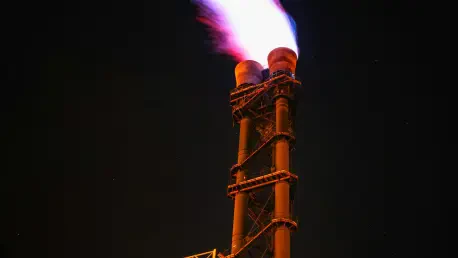The global liquefied natural gas (LNG) market is poised for substantial growth, catalyzed by strategic collaboration between Commonwealth LNG and JERA. Projections indicate significant expansion in U.S. LNG export capacity by 2030, signaling transformative implications for the international energy trade. As key players align efforts to elevate output capacity, the ramifications extend to bolstering industry development, ensuring energy security, and fostering international partnerships.
Market Dynamics: Assessing the Impact of Strategic Energy Alliances
The transformative agreement between Commonwealth LNG, a leading U.S. LNG developer, and JERA, Japan’s largest power generator, marks a significant milestone. With Commonwealth’s commitment to supplying 1 million metric tons per annum (MTPA) of LNG under a 20-year agreement, industry focus intensifies on harnessing untapped potential in the LNG sector. Long-term contracts, like Commonwealth’s agreement securing a total of 8 MTPA alongside various partnerships, are foundational to operational viability, facilitating export terminal development and driving overall capacity increases. Aligning with JERA’s diversification strategy through multi-source partnerships, the burgeoning LNG trade exemplifies a pivotal shift in global energy dynamics.
Historical Influence and Evolution in the LNG Industry
To understand the current trajectory, examining historical developments within the LNG industry reveals underlying influences. Initially, LNG emerged as a strategic alternative to conventional fossil fuels, driven by technological innovations and policy adaptations. Evolving from its niche role, LNG became more mainstream, accommodating growing global demand and positioning itself as an essential component of energy strategies. Historical shifts laid the groundwork for potential capacity tripling by 2030, proving the industry’s resilience and adaptability in response to fluctuating market conditions.
Strengthening Infrastructure through Strategic Contracts
Long-Term LNG Agreements: Cornerstone of Export Growth
Central to expanding export capacity, strategic long-term LNG contracts provide financial stability and drive investor confidence. Commonwealth LNG’s alliance with JERA illustrates the significance of such agreements, ensuring the financial viability of their 9.5 MTPA export terminal. Real-world examples demonstrate that these partnerships underpin infrastructure development necessary for capacity augmentation. By navigating complex regulatory landscapes, such partnerships overcome potential barriers, facilitating a stable platform for continued expansion.
Diversifying Supply Channels: A Focus on Energy Security
The agreement with NextDecade, securing an additional 2 MTPA of LNG, highlights JERA’s strategic diversification in supply channels. By pursuing diverse alliances, JERA ensures stable energy supplies, mitigating geopolitical and market risks. Comparatively analyzing emerging trends demonstrates the benefits of multi-sourcing strategies, affording reliability amid dynamic supply chain conditions. Pursuing innovative energy practices such as integrating renewable resources into traditional portfolios presents opportunities for resilience and adaptability.
Addressing Complexities in Regional and Global LNG Markets
Understanding regional disparities and global market challenges enriches insight into the broader LNG landscape. Disruptive innovations, coupled with diverse regional policies, necessitate adapting to fluctuating demand and technological advancements. Expert assessments clarify misconceptions surrounding LNG’s environmental footprint, consolidating its role as a viable long-term energy solution, offering stability amidst evolving market demands.
Predictive Avenues: Emerging Trends Shaping LNG’s Future
The LNG industry’s future prominence relies on emerging trends and technological innovations. Factors such as cleaner energy solutions, AI-driven supply chain enhancements, and regulatory evolutions influence its direction. Observations illustrate potential restructuring of trade practices, with industry leaders offering speculative insights into impending opportunities and challenges. Such forecasts stimulate strategic foresight, paving the way for informed decision-making and proactive adaptation.
Strategic Insights: Recommendations for Stakeholders
Clear synthesis of major takeaways results in actionable strategies for industry participants. By forging international partnerships, optimizing logistics, and embracing technological innovations, stakeholders can navigate this evolving landscape effectively. Recommendations urge businesses to leverage insights, enhancing planning and positioning for competitive advantage in global markets. A proactive stance encourages stakeholders to prioritize sustainability and diversification for long-term success.
Reflecting on LNG Expansion: Long-Term Strategic Impacts
The significance of the LNG expansion lies in its enduring influence on global energy strategies. Strategic agreements and partnerships leave an indelible mark, reflecting the relevance of diversification and sustainability. As the industry evolves, recognizing the strategic importance of LNG diversification offers pathways for growth, resilience, and adaptation in interconnected energy markets. Strategic mobilization of resources within the LNG sector encourages stakeholders to capitalize on insights and position for success in a dynamic global landscape.









